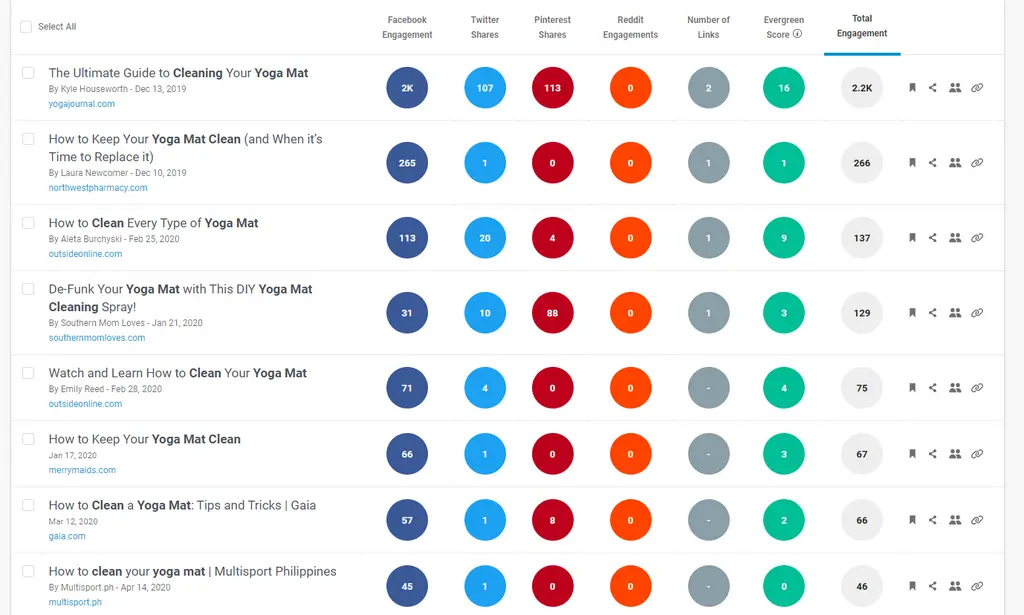
Improving Content Quality with a Keyword Density Checker Tool

Hey there, content maestros! Crafting compelling content is an art, but in the vast digital landscape, it's easy to get lost in the noise. Fear not! Today, we're delving into the world of keyword density and the game-changing tools that can take your content from mediocre to magnificent. Buckle up as we explore the secrets of improving content quality with the magic wand of a keyword density checker tool.
Unveiling the Power of Keywords
Before we dive into the tools, let's unravel the mystery of keywords. They are the building blocks of online content, the secret sauce that makes your message stand out in the vast digital sea. But, like any good recipe, balance is key. Enter keyword density – the ratio of keywords to the total number of words in your content.
The Art of Keyword Density
Think of keyword density as the rhythm of a song. Too much, and it becomes a monotonous beat that drives listeners away. Too little, and the melody gets lost. Achieving the right keyword density is like finding the sweet spot in a song that keeps your audience engaged and coming back for more.
Explore More: Choosing the Right Keywords Rich Domains Tool: Top Picks and Features | The Ultimate Guide to Converting Word Documents to PDF
The Content Conundrum
Picture this: a beautifully designed website with captivating visuals, but the content falls flat. It's like having a gorgeous cake with no flavor. Content quality is not just about aesthetics; it's about delivering substance that resonates with your audience. Keyword density plays a pivotal role in ensuring your content is not just visually appealing but also search engine-friendly.
Keyword Density Checker Tools: Your Content Compass
Now, let's talk about the superheroes of the content realm – keyword density checker tools. These tools are your guiding compass, helping you navigate the tricky waters of keyword optimization. From analyzing keyword frequency to suggesting improvements, they are the secret weapon in your content arsenal.
Yoast SEO: The WordPress Whisperer

For the legion of WordPress enthusiasts, Yoast SEO is the whisperer in the realm of keyword density. It seamlessly integrates into your WordPress backend, providing real-time insights and suggestions to enhance your content's keyword game. It's like having an experienced editor by your side, polishing your content for maximum impact.
Grammarly: Beyond Grammar, Into Keywords
You might know Grammarly as your grammar guardian, but it's also a silent hero in the keyword density game. With its advanced features, Grammarly not only corrects your grammar but also analyzes the overall quality of your content, including keyword optimization. It's like having a Swiss Army knife for content creation.
SEMrush: The SEO Swiss Army Knife
Speaking of Swiss Army knives, SEMrush is the ultimate all-in-one SEO tool. Among its many features, it boasts a powerful keyword density checker. It not only analyzes your content but also gives you a sneak peek into what your competitors are doing. It's like having a backstage pass to the SEO concert.
- Small SEO Tools: Big Impact: Don't let the name fool you; Small SEO Tools have a big impact on your content quality. Their keyword density checker is user-friendly and efficient. It's like having a trustworthy sidekick that ensures your content is not just good but exceptional.
- ProWritingAid: Elevating Your Prose: For those who strive for literary excellence, ProWritingAid goes beyond grammar and style. It includes a robust keyword density checker to refine your content further. It's like having a writing mentor who guides you toward content perfection.
- BuzzSumo: Where Content Meets Strategy

In the realm of content strategy, BuzzSumo stands tall. While primarily known for content discovery, it also offers insights into keyword density. It's like having a strategist in your corner, ensuring that your content not only speaks to your audience but also aligns with SEO best practices.
Also Read: Keyword Research for Domain Names: Finding the Perfect Match | Advanced Keyword Research Tool Techniques: Unleash the Power of Your Tools
Conclusion: Elevate Your Content Symphony
As we wrap up this journey into the world of keyword density checker tools, remember that content creation is an ever-evolving symphony. Utilizing these tools isn't about a one-time fix but an ongoing process of refinement. Keyword density, when optimized with the right tools, becomes the conductor of your content orchestra, ensuring a harmonious blend of substance and style.
So, content creators, embrace the power of keyword density checker tools. Let them be your companions in the quest for content excellence. Elevate your prose, captivate your audience, and let your content shine in the digital spotlight. It's time to turn the ordinary into the extraordinary – one keyword at a time!
Free Tools: Free URL Encoder Decoder Tool Online | Free Bulk Email Validator Tool Online
Frequently Asked Questions
1. How do you measure keyword density?
Measuring keyword density is easy! Use online keyword density checker tools like SmallSEOTools or SEObook. Just copy and paste your content, and these tools will show how often your chosen keyword appears. It helps you find the right balance for SEO.
2. What is keyword density 1%?
A 1% keyword density means your keyword appears once for every 100 words in your content. It's a subtle way to include your keyword without making your content feel too repetitive.
3. How much keyword density per 100 words?
Aim for a keyword density of 1-3% per 100 words. This helps search engines understand your content without overloading it with keywords.
4. How many keywords per 1,000 words?
For 1,000 words, aim for 10 to 20 keywords. This keeps your content diverse and interesting while boosting your SEO.
5. How many keywords are good for SEO?
For SEO, aim for a mix of 5 to 10 relevant keywords. This variety helps your content appeal to a broader audience and improves search engine visibility.
6. How many keywords are in 700 words?
For 700 words, aim for 7 to 14 keywords. It ensures a good keyword spread without making your content sound repetitive.
7. What is a backlink in SEO?
A backlink in SEO is like a recommendation from another website to yours. High-quality backlinks from reputable sites boost your website's credibility and improve its search engine ranking.
8. What is the minimum word count for SEO?
While there's no strict rule, aiming for at least 300 words per page is a good practice for SEO. This helps search engines understand your content better.
9. What are keywords for SEO?
Keywords for SEO are words or phrases people use in search queries. Including these in your content helps search engines understand and rank your pages. Choose relevant keywords to reach your target audience.
10. Is Semrush free?
While Semrush offers a free version, it has limitations. The free version provides a taste of their features, but for full access, a paid subscription is required.
11. What are quality backlinks?
Quality backlinks come from reputable and relevant websites. These links carry more weight in boosting your website's authority and improving your search engine ranking.
12. How do I create SEO keywords?
Creating SEO keywords involves understanding your audience, using tools like Google Keyword Planner, and considering relevance and competition. Aim for a mix of short and long-tail keywords that align with your content.



